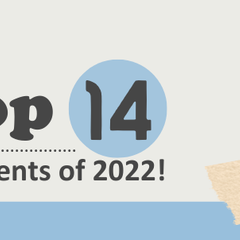
Diabetes burnout: a common but neglected impact of diabetes
9 Jan 2023, 6:46 p.m. in #insulin4all USA, Global Stories, News & Statements by Konstantina Taki, Ian Devaney
Research conducted by T1International finds that people living with diabetes are experiencing diabetes burnout at a very high rate, with a significant impact on their health and wellbeing.
In June, T1International shared a blog post outlining the phenomenon of diabetes burnout, which is the loss of strength or motivation, usually as a result of prolonged stress in regards to diabetes management and care. At the end of this post, our team included a questionnaire for people with diabetes to address burnout effects and what factors contribute to this feeling. While circumstances and realities vary for all individuals, some notable patterns emerged that everyone in our community should be aware of and concerned about.
While we were enthused by the number of participants and support, the results of the survey painted a picture of a diabetes community faced with prolific burnout that many are confronting alone. In this article, we take a look at what the data means for people facing a condition that is ever present and in the forefront of mind of a person living with diabetes.
Of the 107 people who took the questionnaire, over 74% have lived with diabetes for more than 10 years. This means that the majority of participants have been managing their condition for a significant portion of their lives.
Overall, people with diabetes are experiencing burnout at a very high rate, with over half (55%) of respondents reporting they experience burnout much or all of the time. One in seven (14%) of these consider diabetes burnout as an ongoing condition that is always present in their life.
"I feel overwhelmed while taking care of diabetes tasks and remember (even though I’ve had this half of my life) that I’ll have to do this forever. I push through. But it can be exhausting. I wish we got a break sometimes!"
This feeling of burnout has a clear and definite impact on the lives of people with diabetes. Over half of respondents (57%) reported a strong or overwhelming impact that takes the form of lack of sleep, feelings of depression and anxiety and neglect of blood glucose management. When sharing their experience, people noted feelings such as anger and lethargy in the face of constant stress.
Those who took the questionnaire were given free space to express their thoughts or feelings on the topic, and noted that their stress presents in different ways. Many experience stress related to their supplies, adequacy of access and insurance coverage. Others experienced poor eating habits and lapses in care as a result of their burnout. A common issue reported is the continuous presence of a condition that utterly drains their energy.
Despite this, a staggering number of people with diabetes (62% of participants) are not seeking any support from friends, family or mental health professionals. Furthermore, less than a quarter (24%) claimed they feel comfortable talking with their own doctor about this burnout. Many sacrifice seeking help from professionals at the cost of mental health. We would venture to assume that those who feel unsupported by their community have a higher chance of poor management compared to those who have a strong support system.
"It’s a daily routine. When the constant lows and highs hit due to something I ate or did or didn’t even do in my daily life, it can get hard to handle. I always get past it and start a new day, but it’s not easy to deal with the mental strain of feeling a sense of failure and how that may affect me later down the line with diabetes complications."
In reviewing the information and statements provided freely by survey participants, diabetes burnout leads people with diabetes to feelings of anxiety, depression and frustration. For many, the persistent management and attention that the condition requires leads to feelings and stress that manifest in other areas of their lives.
Burnout appears very common among people with diabetes. Most of the time it remains unaddressed or untreated by healthcare professionals. In seeking solutions, a sizable number of participants (44%), reported that online communities such as T1International are helpful in terms of support for diabetes care and burnout.
It is notable and concerning that online spaces are filling gaps that healthcare systems across the world should be addressing. While inadequate access to insulin and supplies is a major cause of diabetes burnout, the survey shows that regardless of access, burnout is experienced by almost all respondents (97.1%) at some point in their life.
"It becomes harder to make good decisions regarding my diabetes management because it feels overwhelming. I often also eat more, meaning more dosing/adjustment is needed. I do take care of myself, but it’s not the best care and my fatigue towards this situation bleeds over into other aspects of my daily life, especially as it pertains to mood. It is just harder for me to do things, broadly speaking."
In the future, healthcare professionals and institutions should consider the impacts chronic conditions have on other elements of the lives of people with diabetes and their ability to manage these conditions in the long term. People living with diabetes understand all too well that healthcare professionals, who do not have to contend with the condition on a daily basis, can never fully grasp how challenging it is to live with it. It is therefore important that governments and institutions around the world prioritize and dedicate more resources for mental health support for people with diabetes.
Elizabeth Pfiester and Katherine Souris contributed to this article.
Elizabeth is founder and executive director of T1International. She has lived with type 1 diabetes for over 30 years.
Katherine is a consultant with T1International. She has lived with type 1 diabetes for 17 years.
To read this article on its original publication, posted on December 20th, please visit Diabetes Voice here.








